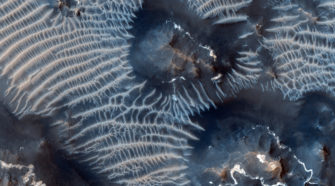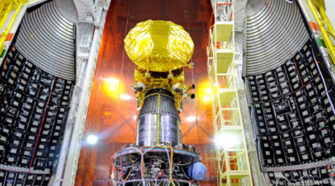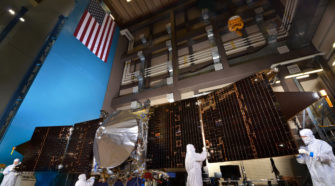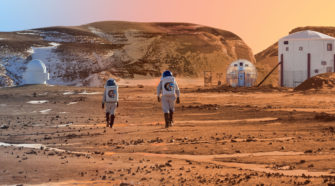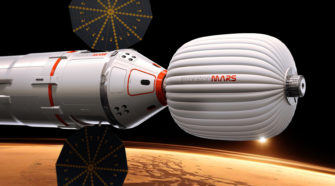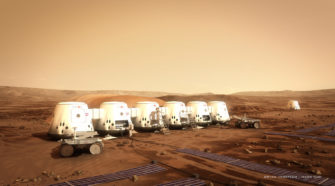Issue #4 (November 2013)
Generations of windblown sediments on Mars
This colorful scene is situated in the Noctis Labyrinthus region of Mars, perched high on the Tharsis rise in the upper reaches of the Valles Marineris canyon system. Targeting the bright rimmed bedrock knobs, the image also captures the interaction of two distinct types of windblown sediments. Surrounding the bedrock knobs is a network of …
India launching MOM to study Mars
India is gearing up for its first ever space undertaking to the Red Planet – the Mars Orbiter Mission, or MOM – which is the brainchild of the Indian Space Research Organization, or ISRO. Among other objectives, MOM will conduct a search for potential signatures of Martian methane – which could stem from either living …
NASA’s MAVEN orbiter set to launch on quest to study Mars atmosphere
MAVEN (Mars Atmosphere and Volatile EvolutioN Mission) is NASA’s next mission to Mars. After a decade of hard work by dedicated science and engineering teams, it is scheduled to lift off on Nov. 18, 2013 from Cape Canaveral, Florida on an Atlas V 401 rocket. The 903 kilogram (2000 pound) probe will arrive at the …
The Mars Society: Humans to Mars in a decade
A long time ago in the Milky Way Galaxy, Chris McKay, Penelope Boston, and Carol Stoker were on Planet Earth contemplating all things Mars. These three scientists, graduate students at the University of Colorado, decided to form a group called the Mars Underground and hold annual meetings to explore the science behind putting humans on …
Inspiration Mars plans for human slingshot
Mars seems to be the hottest vacation destination for interplanetary travel right now. With many plans floating around to send rovers, orbiters, even human missions to orbit and settle, Mars is a hot topic in space travel discussions right now. Dennis Tito, the first person to travel to space as a tourist with a purchased …
Mars One betting colonizing planet will be great television
Mars One is a non-profit foundation, co-founded by Bas Lansdorp and Arno Wielders, to establish a human presence on Mars. The prime difference Mars One has over similar peer programs is its unique strategy; this is a one way ticket for a permanent “homesteading” community in an apolitical and international long term plan, thus removing …

